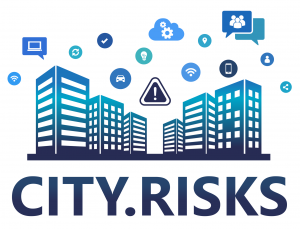Active & Closed Projects
 PoliVisu enhances public involvement and support in urban policy making, by equipping decision makers with the skills and tools – from open (geo) data processing to advanced visualizations – to use big data for collaborative policy experimentation. As a result the city makes better sustainable policy decisions and manages operations more effectively.
PoliVisu enhances public involvement and support in urban policy making, by equipping decision makers with the skills and tools – from open (geo) data processing to advanced visualizations – to use big data for collaborative policy experimentation. As a result the city makes better sustainable policy decisions and manages operations more effectively.
Project overview
 FUPOL is an FP7 project, which has successfully developed products and has now started to exploit them on a worldwide scale. It provides a completely new approach to traditional politics building on major innovations like multichannel social computing, crowd sourcing and simulation. Read More
FUPOL is an FP7 project, which has successfully developed products and has now started to exploit them on a worldwide scale. It provides a completely new approach to traditional politics building on major innovations like multichannel social computing, crowd sourcing and simulation. Read More The UrbanData2Decide project is funded by the Joint Programming Initiative Urban Europe and aims to extract and process information from public social media and open data libraries to support local governments towards a holistic, sustainable and well-founded decision-making process.
The UrbanData2Decide project is funded by the Joint Programming Initiative Urban Europe and aims to extract and process information from public social media and open data libraries to support local governments towards a holistic, sustainable and well-founded decision-making process.
Read More
 CLIPS is a unique pilot project funded through the CIP Programme of the European Commission, aimed at the development of a new approach to the delivery of public services through the use of cloud computing. The CLIPS partners are keen to involve other public organisations, municipalities, citizens and SMEs to help further define end user requirements and to ensure that the final result is targeted towards your needs. As a result we would like to better understand the challenges that you face that may be addressed through the use of the cloud whether that be resource, financial or even technical.
CLIPS is a unique pilot project funded through the CIP Programme of the European Commission, aimed at the development of a new approach to the delivery of public services through the use of cloud computing. The CLIPS partners are keen to involve other public organisations, municipalities, citizens and SMEs to help further define end user requirements and to ensure that the final result is targeted towards your needs. As a result we would like to better understand the challenges that you face that may be addressed through the use of the cloud whether that be resource, financial or even technical.
Read More
 ROUTE-TO-PA is a H2020 multidisciplinary innovation project that, by combining expertise and research in the fields of e-government, computer science, learning science and economy, is aiming at improving the social impact of ICT-based technology platforms for transparency and increasing the engagement of citizens by making them able to socially interact over open data, by forming or joining existing online communities that share common interest and discuss common issues.
ROUTE-TO-PA is a H2020 multidisciplinary innovation project that, by combining expertise and research in the fields of e-government, computer science, learning science and economy, is aiming at improving the social impact of ICT-based technology platforms for transparency and increasing the engagement of citizens by making them able to socially interact over open data, by forming or joining existing online communities that share common interest and discuss common issues.
Read More
 City.Risks is a H2020 research and innovation project, aiming at avoiding and mitigating safety risks in urban environments through the involvement of citizens and peer communities in co-operation with the authorities. • What – diverse types and sources of information will be analysed, integrated and exploited (crime data, demographic data, geographic data, etc.). • Who – citizens are the focus and will be engaged as both targets and sources of information. • When – the ultimate goal is to ensure timely sharing of appropriate information both for preventing and mitigating security threats. • How – by primarily using citizens’ smartphones and mobile devices. Read More
City.Risks is a H2020 research and innovation project, aiming at avoiding and mitigating safety risks in urban environments through the involvement of citizens and peer communities in co-operation with the authorities. • What – diverse types and sources of information will be analysed, integrated and exploited (crime data, demographic data, geographic data, etc.). • Who – citizens are the focus and will be engaged as both targets and sources of information. • When – the ultimate goal is to ensure timely sharing of appropriate information both for preventing and mitigating security threats. • How – by primarily using citizens’ smartphones and mobile devices. Read More
 REPLICATE – REnaissance of PLaces with Innovative Citizenship And TEchnologies – is a European research and development project that aims to deploy integrated energy, mobility and ICT solutions in city districts. REPLICATE team is working to accelerate the deployment of innovative technologies, organisational and economic solutions to significantly increase resource and energy efficiency, improve the sustainability of urban transport, and drastically reduce greenhouse gas emissions in urban areas. Therefore, the project aims to enhance the transition process to a smart city in three areas: energy efficiency, sustainable mobility, ICT Infrastructures. Read More
REPLICATE – REnaissance of PLaces with Innovative Citizenship And TEchnologies – is a European research and development project that aims to deploy integrated energy, mobility and ICT solutions in city districts. REPLICATE team is working to accelerate the deployment of innovative technologies, organisational and economic solutions to significantly increase resource and energy efficiency, improve the sustainability of urban transport, and drastically reduce greenhouse gas emissions in urban areas. Therefore, the project aims to enhance the transition process to a smart city in three areas: energy efficiency, sustainable mobility, ICT Infrastructures. Read More
 Datasea is a Spanish initiative to improve the know-how and best practices in research data storage and curation. Research data confirm the progress of science, but “the data value lies in its use” (Bits of Power, 1997). To maximize its cost, national and international organizations are improving mechanisms to share, analyse and preserve them. Both, the leaders of the G8 summit (June 2013) as the Communication of the European Commission Towards a thriving data-driven economy, indicate that the data derived from research and the results of scientific experiments are particularly valuable. The current paradigm of science, based on the evaluation of publications and patents, gradually includes data as a key piece of the value chain. Data are very different and belong to the long tail, or little data (Borgman, 2015).
Datasea is a Spanish initiative to improve the know-how and best practices in research data storage and curation. Research data confirm the progress of science, but “the data value lies in its use” (Bits of Power, 1997). To maximize its cost, national and international organizations are improving mechanisms to share, analyse and preserve them. Both, the leaders of the G8 summit (June 2013) as the Communication of the European Commission Towards a thriving data-driven economy, indicate that the data derived from research and the results of scientific experiments are particularly valuable. The current paradigm of science, based on the evaluation of publications and patents, gradually includes data as a key piece of the value chain. Data are very different and belong to the long tail, or little data (Borgman, 2015).
Project overview
![]()
The H2020 DataVaults project aims to deliver a novel framework and architecture that leverages personal data, coming from diverse sources (sensors, IoT, wearables, data APIs, historical data, social network data, activity trackers, health records, demographic profiles, etc.) to help individuals to construct their unified personal data hub, collect at a single point all of their personal data in a secure and trusted manner, and retain ownership and control on what to share and with whom, receiving also compensation for the artefacts they place at the disposal of other third parties. Read More
